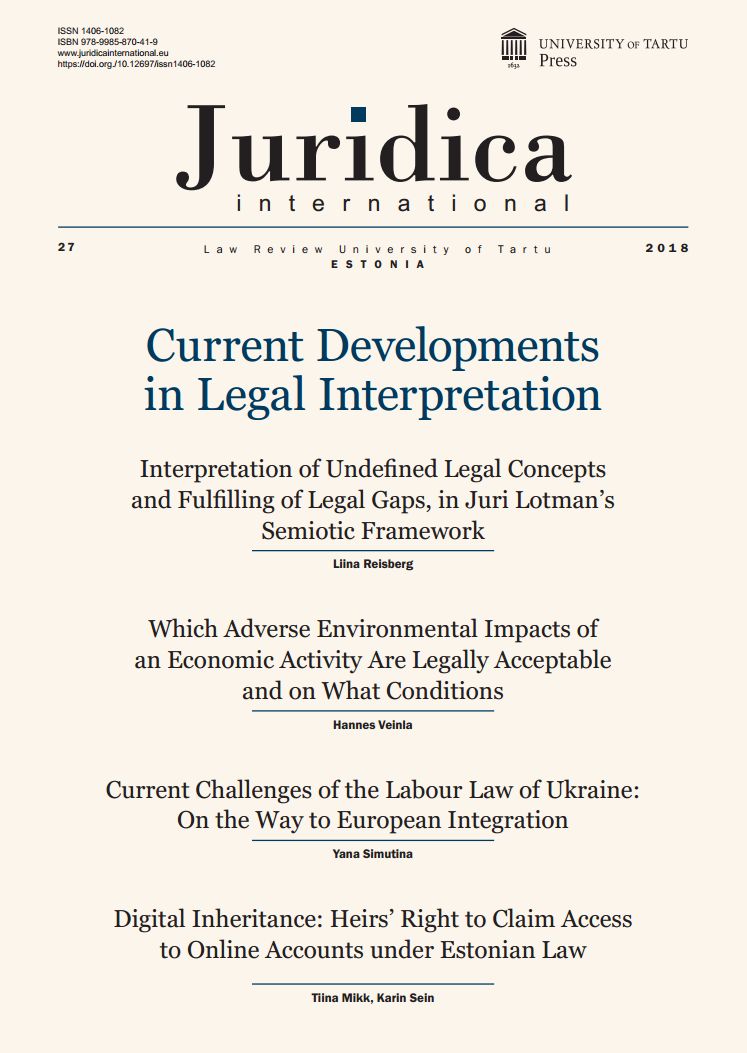Limitation of Freedom of Speech and of the Press by Penal Law in the Final Decades of the Russian Empire
DOI:
https://doi.org/10.12697/JI.2018.27.04Keywords:
basic rights in Russia, penal codes, limitation of freedom of speech and the press, crimes against the state, Tallinn County Court, tsarist Russian penal law, mutiny, insubordination to state authorityAbstract
In the 21st century, it is inappropriate to have to ask whether criticising a political regime or exercising freedom of speech could lead to criminal charges and criminal punishment. In contrast, a hundred years ago the restriction of people’s freedom of speech, especially in relation to political matters, was quite extensive, both in autocratic Russia and elsewhere. The article addresses the legal situation in the Estonian territory of the Russian Empire until 1918, when insubordination to state authority and inciting mutiny were punishable by law. On 17 April 1905, the so-called Freedom Manifesto gave people freedom of speech, and the Fundamental Laws of the Russian Empire entered into force one year later, wherein fundamental rights were enumerated, among them the right to express one’s convictions, both orally and in writing. At the same time, however, restrictions continued to apply to the fundamental rights declared, which at times were very strict in the tsarist state and rendered the space for exercise of those rights extremely narrow.
The article provides an overview of the penal legislation that was applicable within the Estonian territory at the dawn of the 20th century, which set boundaries to freedom of speech and of the press. Considered separately is the case law of the Tallinn Circuit Court pertaining to charges of instigation of mutiny, with the aim of showing how these provisions were applied in judicial practice and the context in which the state restricted people’s fundamental rights. In the Tallinn Circuit Court, it was primarily newspaper editors who were charged with incitement to mutiny, because they allowed the publishing of various calls to action in relation to workers’ movement propaganda and demands for better conditions and rights for workers. At the beginning of the 20th century, class warfare was considered a crime against the state, and the case law demonstrates how the constitutional freedoms of speech and the press were restricted via strict penal-law measures.


